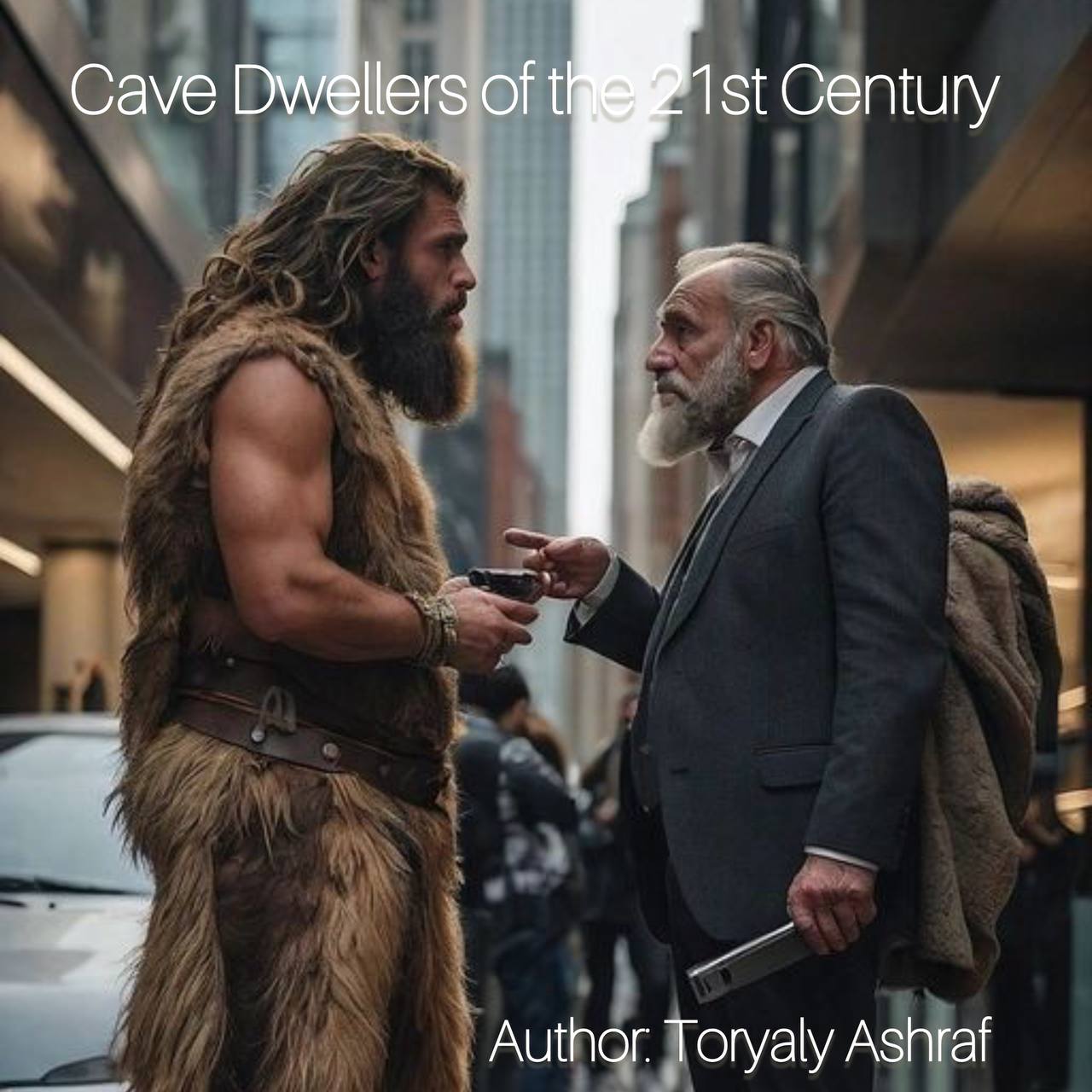Author: @Toryaly Ashraf
July 13, 2020
The greatest service you can render to yourself is to embrace change
Toryaly Ashraf
These days, we often encounter people whose primary concerns revolve around three things: survival, food, and sleep. Isn’t that true? Isn’t everyone worrying about staying alive, finding something to eat, and resting as quickly as possible?
Imagine being one of the early humans—those who lived in caves, wore leaves for clothing, and hunted to survive, destroying other creatures to sustain themselves. They didn’t worry about tomorrow, education, health, or the welfare of others. They neither considered the world and its creations nor showed concern for their fellow cave dwellers. Concepts like violence against women or money simply didn’t exist.
Strangely, today we see people around us who bear a striking resemblance to those primitive humans. For instance, I recently met a childhood friend who hasn’t changed at all over the past decade. He is the same person he was ten years ago, with no progress in his life, clinging to outdated thoughts and a limited mindset.
These days, with the outbreak of the pandemic, when I talk to people, they often say, “Oh, the quarantine has left me unable to do anything.” Many people use such excuses, but the truth is that, with or without a pandemic, there are many who only eat, drink, and sleep. They are, in essence, modern-day cave dwellers—21st-century cavemen.
Of course, the cave-dwelling of today isn’t exactly like that of thousands of years ago. There are exceptions. For example, my childhood friend spent ten years as a figurative cave dweller without making any progress. Ahmed might spend five years in such a state; Mahmoud might spend half his life. The difference between modern and primitive humans lies in the duration of this phase: the shorter it is, the more modern the individual.
Recognizing the Modern Human
Every one of us faces moments in life when we feel everything is over—when we are exhausted, hopeless, unloved, or overwhelmed by failure. Life seems devoid of joy, and we feel too tired to go on. These are our “cave-dwelling” moments. While the quality and duration of this period differ for each individual, two universal truths remain:
1. We all experience this phase at least once in our lives.
2. We have the power to end it.
The transition from a cave dweller to a modern human begins with change. We can even transcend our age and circumstances. But to achieve this, we must focus on a few essential steps:
1. Accept That Everything Happens for a Reason
This is the first step toward becoming a new person. No matter how terrible the events in your life have been, you must accept them as necessary. Understand that if God were to give you a chance to go back ten years and start again, you would either become the same person you are today or someone worse. Acceptance of the past is the foundation for change.
2. Understand the Characteristics of Cave Dwellers and Modern Humans
Once you decide to change, reflect on the traits you previously had that you need to leave behind. Research what defines a modern human.
The greatest hallmark of modern humans is their ability to enjoy life, not merely survive it. A few days ago, I met someone who was lost in life. He asked me, “Do you enjoy your life?” I replied, “Yes.”
He asked, “How?”
I told him:
• Because I wake up healthy.
• Because I have a family and great friends.
• Because I’ve been educated.
• Because I have clear goals and a purpose.
• Because I have the best religion.
• Because I think freely and can make decisions about my future.
I measure happiness not by what I lack, but by what I have.
3. Think Beyond Logic
Logical thinking dictates that during quarantine, I should stay home, eat, sleep, and wait for it to pass. Logical thinking says that if a bag of flour costs $20 this month, I only need to earn $20 to get by.
But thinking beyond logic suggests that quarantine could last for years.
What then? Or that the price of flour might rise to $30 in six months—what will I do then?
While logic is based on the present, thinking beyond it focuses on the long-term future. If you cling to logic alone, you are no different from a cave dweller. Remember, a true human of 2021 isn’t someone living in 2021, but someone who plans for 2026.
4. Plan Your Life
Planning has become the greatest weapon against failure. Without both short- and long-term plans, you remain a cave dweller. To travel into the future, you must strategize.
To succeed, ensure you have these resources:
• Food to eat
• Water to drink
• Time to invest
• Relationships to support you
• A healthy mind
• Eyes and ears to learn and communicate
Cave dwellers focus only on food, water, and sleep. Modern humans prioritize all of the above and more.
Conclusion: Embrace Change and Enjoy Life
If you recognize that you are in a “cave-dwelling” phase, change immediately. Learn to enjoy everything you have—even the smallest blessings, like watching clouds, the rustle of leaves, the laughter of children, wise advice from elders, birdsong, reading books, or walking with friends.
Happiness leads to peace, and peace is humanity’s ultimate desire.

